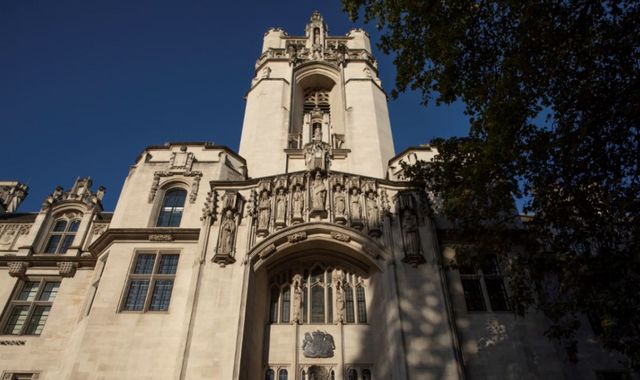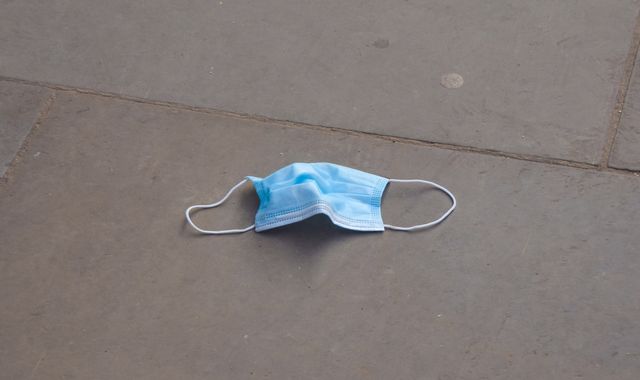Supreme Court: Parliament suspension ‘not a matter for judges’, government lawyer argues
Written by News on 19/09/2019
The power to suspend parliament is a political matter and not for the courts to decide, the government’s lawyer has argued.


Sir James Eadie said that if the Supreme Court intervened it would violate the “fundamental constitutional principle” of the separation of powers between courts and the government.
“This is, we submit, the territory of political judgment, not legal standards,” he said.
On the second day of the hearings:
- Sir James argued Boris Johnson’s decision to prorogue parliament was neither improper nor illegal
- He denied there was a precedent to show the court could rule on the length of prorogation
- Aidan O’Neill QC, representing a group of around 75 MPs and peers, argued the suspension’s purpose was “stymieing parliament”
Boris Johnson announced in late August that he had asked the Queen to suspend parliament for five weeks until 14 October, when a new session would begin with a Queen’s Speech and a fresh legislative agenda.
The Supreme Court is examining claims from two groups who argue that the prime minister should not be allowed to suspend parliament for so long and whether the motive behind the action was constitutional.
Critics who have taken their historic legal challenge to the UK’s highest court of appeal claim the suspension was intended to prevent scrutiny of his belief that the UK should leave the EU by the deadline of 31 October, with or without a deal.
Mr Johnson has said the “prorogation”, or suspension, was necessary to allow him to introduce a new legislative agenda.
If Sir James’s argument is accepted, any investigation by the court into issues including if Mr Johnson lied or what his motives were would be dropped.
He made the case that even if there was a political advantage to suspending parliament, in the eyes of the law that does not mean it is unlawful or a matter for the courts.
His case against Gina Miller convinced High Court judges a few weeks ago.
The businesswoman’s case wanted the judges to find that prorogation for an “exceptional” length of time was an “unlawful abuse of power”, but the court ruled suspending parliament was “inherently political in nature and there are no legal standards against which to judge the legitimacy”.
However, a separate case brought by SNP MP Joanna Cherry in Scotland was successful, with judges ruling the prorogation was unlawful.
The court found the suspension “an egregious case of a clear failure to comply with generally accepted standards of behaviour of public authorities”.
Speaking in court today, Sir James said in his opening remarks: “We are dealing with a prerogative power.
“It is a prerogative power that has been expressly preserved by parliament.”
:: Listen to the Sophy Ridge on Sunday podcast on Apple Podcasts, Google Podcasts, Spotify, Spreaker
One justice posed the question of what would happen if a PM decided he did want to stifle the scrutiny of his actions and prorogued for a year. Sir James acknowledged the potential extreme use of it but told the court that principles shouldn’t be established by being tested against the extreme.
He said there are controls that can be set against extreme circumstances and that parliament would exercise control over the government in all that.
Sir James also argued that MPs had their chance to legislate against prorogation when they passed a bill that forces the government to seek a Brexit extension in case of no-deal, saying the MPs could have used that piece of legislation also to avoid the suspension.
Pointing the judges to the cabinet minutes and memos to Mr Johnson which have been submitted as evidence, Sir James said it was clear that the main aim of the prorogation was to get to a position in which a new Queen’s Speech could be prepared and not for any “improper purpose”.
However, Aidan O’Neill QC, representing a group of around 75 MPs and peers led by Ms Cherry, told the justices that “closing down parliament is a derogation from that general constitutional principle of accountability” and was “unlawful because it had the purpose of stymieing parliament”.
He argued the length of suspension is not important, rather the intent and effect of it is.
Mr O’Neill also urged the justices not to treat the government’s published documents as “gospel” because it can’t be certain they are “the complete picture.”
“Once parliament has been prorogued, the only constitutional actor left standing is the courts,” he said.
(c) Sky News 2019: Supreme Court: Parliament suspension ‘not a matter for judges’, government lawyer argues







